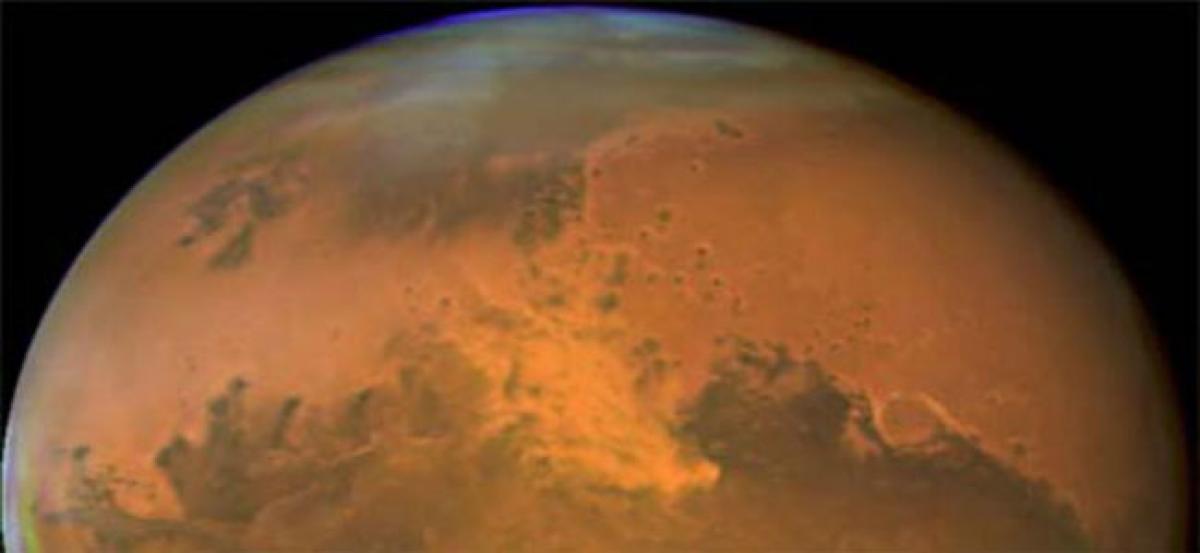NASA yet to hear from storm-hit Mars Opportunity rover

NASA is yet to make contact with its Mars Opportunity rover ever since a massive storm started on the Red Planet in June Based on the longevity of a 2001 global storm, NASA scientists estimate it may be September before the haze has cleared enough for Opportunity to power up and call home, the US space agency said this week
Washington : NASA is yet to make contact with its Mars Opportunity rover ever since a massive storm started on the Red Planet in June. Based on the longevity of a 2001 global storm, NASA scientists estimate it may be September before the haze has cleared enough for Opportunity to power up and call home, the US space agency said this week.
Scientists first observed a smaller-scale dust storm on May 30. By June 20, it had gone global. For the Opportunity rover, that meant a sudden drop in visibility from a clear, sunny day to that of an overcast one. Because Opportunity runs on solar energy, scientists had to suspend science activities to preserve the rover's batteries. NASA said no response has been received from the rover as of July 18. Luckily, all that dust acts as an atmospheric insulator, keeping nighttime temperatures from dropping down to lower than what Opportunity can handle.
But the nearly 15-year-old rover is not out of the woods yet as it could take weeks, or even months, for the dust to start settling. When the skies begin to clear, Opportunity's solar panels may be covered by a fine film of dust. That could delay a recovery of the rover as it gathers energy to recharge its batteries. A gust of wind would help, but is not a requirement for a full recovery, NASA said. While the Opportunity team waits in earnest to hear from the rover, scientists on other Mars missions have gotten a rare chance to study this storm.
The Mars Reconnaissance Orbiter (MRO), Mars Odyssey, and Mars Atmosphere and Volatile EvolutioN (MAVEN) orbiters are all tailoring their observations of the Red Planet to study this global storm and learn more about Mars' weather patterns. Meanwhile, the Curiosity rover is studying the dust storm from the Martian surface, the US space agency added.














